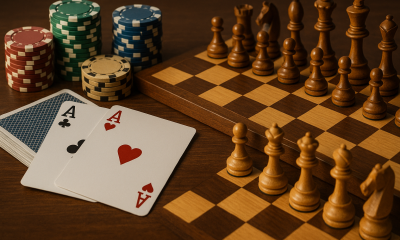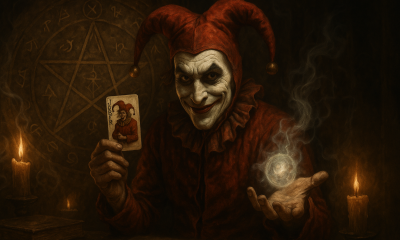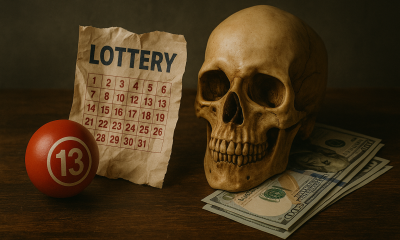Legends
Wild Bill Hickok: The Poker Legend of the Wild West
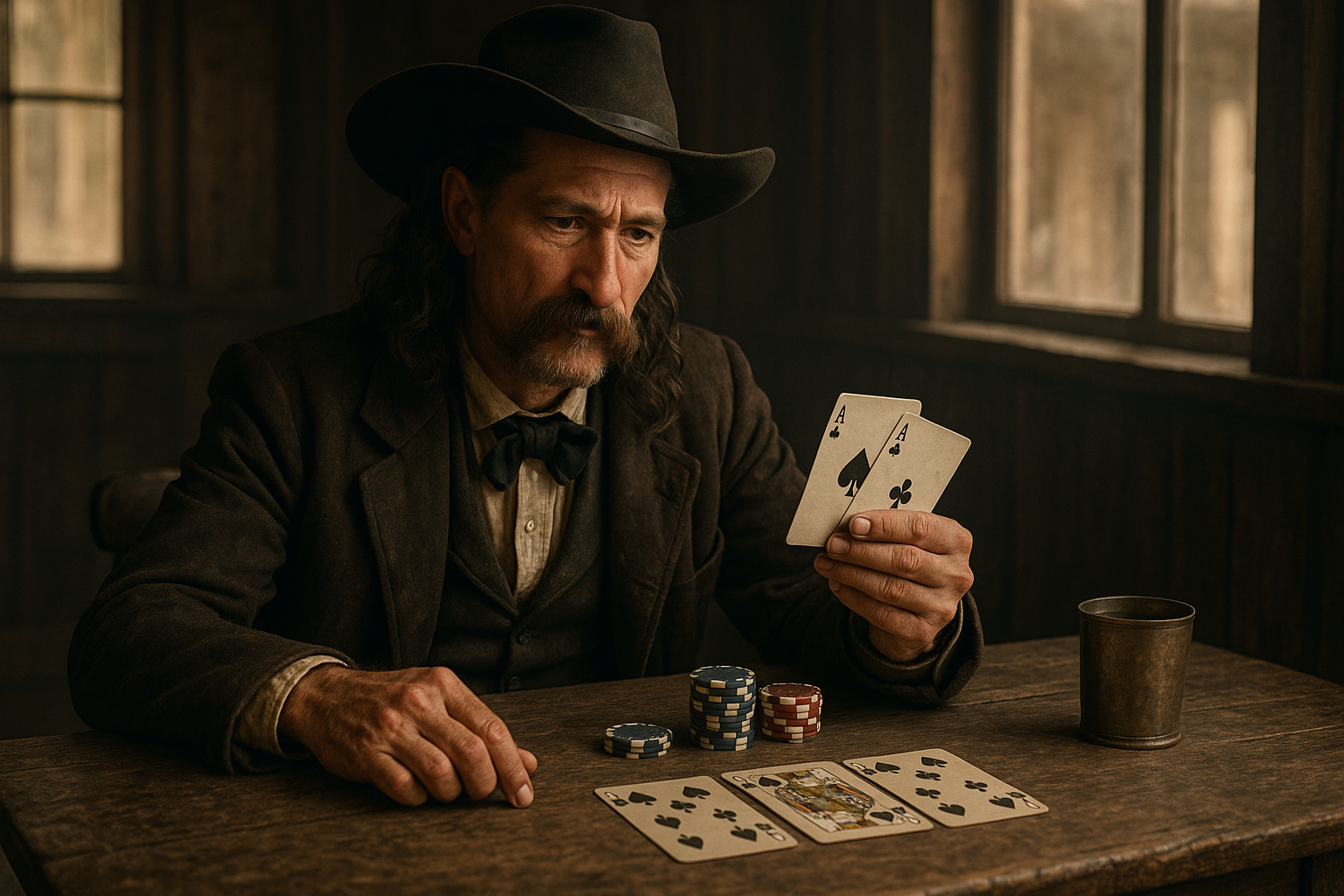
Wild Bill Hickok was a legendary figure who has inspired books, TV series, comics, and embodies the spirit of the American Wild West. During his lifetime, Wild Bill Hickok was already a notorious gunslinger during his lifetime, building a reputation for being the fastest gun drawer in the west and a devastating poker player. Though a lot of the facts were spiced with fiction, and after his death, the legend of his exploits has only grown larger and more outlandish.
Hickok’s tumultuous life and highly publicised death paint the picture of a true romantic figure of the Old West. Among his many accolades and feats, he was a keen gambler. Poker was Wild Bill’s game of choice, and he ultimately died playing the game, with his final hand becoming widely known as the “dead man’s hand”. Though we don’t have many accounts of his actual poker prowess. How much he won, or actually how good he was at poker, in facts and numbers.
But his reputation and association with the game were enough to earn Wild Bill a place in the Poker Hall of Fame.
Wild Bill Hickok’s Origins and Early Life
Wild Bill Hickok was born James Butler Hickok in Illinois, 1837. His father was a farmer, and Hickok was of English ancestry, the 4th of six children. Not much is known about his childhood, apart from he was a natural with a gun and had distinguishing red hair. James’ father, William Hickok, died in 1852, and in 1858 James went by his father’s name. He left Illinois in 1855 for Kansas, where the first of his notorious exploits was to happen.
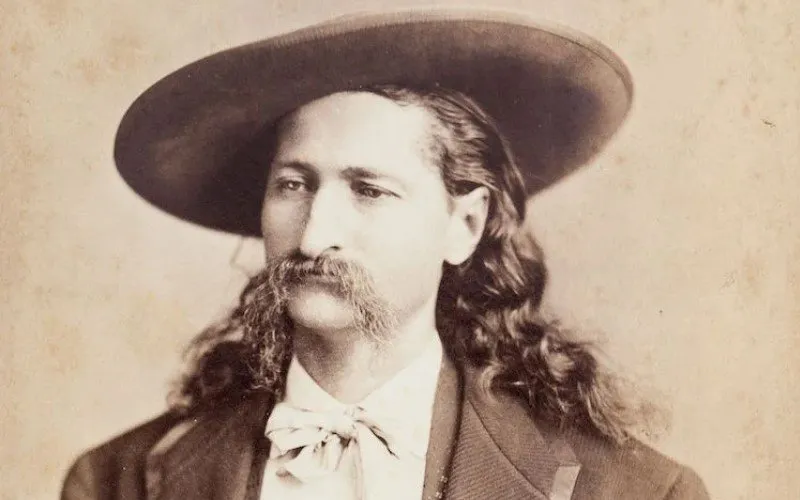
In 1861, now called William Hickok, he was embroiled in a dispute with the McCanles Gang following a demand for an overdue payment property. McCanles was aiming threats at Horace Wellman, a local station manager, and Hickok happened to be there at the time. Before he could act, Hickok shot McCanless and in the ensuing gunfight, James Wood and James Gordon (two members of the McCanles gang) were also killed. Hickok was tried, but he was deemed to have acted in self-defence.
Becoming “Wild Bill”
Following the incident, William Hickok grew a moustache and went by the name Wild Bill. The Civil War broke at later that year, and Wild Bill served in the Union Army. He served as a wagon master, but was discharged in 1862. Not much is then known about his antics during the Civil War, but it is widely suspected that he became a spy for the Union. But a lot of the myths and legend of Wild Bill began during the Civil War years. And by the end of it he was a well known figure in the American Wild West.
Contemporary reports suggest Bill mustered out and went to Springfield, where he gambled. He gained a reputation for telling tall tales and exaggerating his exploits. A skill that could easily lend a hand in building his poker bluffing. The words used to describe him were a ruffian by nature, delighted when “on a spree” to frighten nervous men and timid women”.
Not quite the reputation of a Civil War hero by any stretch.
From Civil War Veteran to Lawman and Scout
Wild Bill was embroiled in another gunfight in 1865, in Springfield. This fight was with a local gambler over disagreements about unpaid gambling debts. The two men dueled in the town square and ended with Wild Bill killing his opponent. He was arrested for murder, but the charge was reduced to manslaughter and eventually cleared.
Despite the big public outcry, Hickok’s legend only grew, and later that year, he was recommended for the position of deputy federal marshal in Kansas. A ruffian turned lawman, Wild Bill Hickok was elected City Marshal of Hays and Sheriff of Ellis County, Kansas. He turned his act around and was already arresting offenders and keeping the law. While serving as sheriff, Wild Bill Hickok was involved in three quick draw gunfights. After his last fight, in which Hickok killed a US cavalryman, he lost his re-election bid to become deputy.
Later, he became the marshal of Abilene, Kansas, which would be his last service as marshal. His final gunfight came in 1871, when Hickok was attempting to arrest Phil Coe for shooting a gun in city limits. Wild Bill shot Phil Coe, killing him instantly, seemingly ending the fight. But then, Hickok caught a glimpse of someone running in his direction and fired two more quick shots. The man running was his deputy, Marshal Mike Williams, who was coming to help Hickok. This accidental killing haunted Wild Bill for the rest of his life, and shortly after he was relieved of his duties.
Despite earning lots of money through his poker bankroll and gambling exploits, Wild Bill never took to the flashy life. He was even arrested for homelessness and wandering later in life.

Gun Skills and Notoriety
Not many back in those days could survive so many gunfights and live to tell the tale. Yet Wild Bill seemed to always come through unscathed, enhancing his reputation as an untouchable Frontiersman. He carried a pair of ivory-handled Colt 1851 Navy revolvers, a standard issue of the time. But there were a few tricks to give Wild Bill the edge over his enemies.
He wore his guns backwards, with the muzzles angled outwards slightly to make it easier for him to draw. Those extra milliseconds that he won were part of his trick. The other trick, which was not well known at the time, was that Wild Bill Hickok was incredibly ambidextrous. He could round off 12 shots, whereas most people could only shoot 6. He did have a few weaknesses, such as his vision problems which flared up in 1871. By his death in 1876, Wild Bill Hickok’s aim and general health were in decline.
This tough guy persona that Wild Bill created could well have serviced him in his poker playing. Bluffing is all a part of the game, and with his tall tales and rough-edged demeanour, it is more than likely he could have intimidated his peers. Card playing back then was a dangerous game, fueled with violence and possibly leading to shootings.
Dead Man’s Hand and Death
In 1876, Wild Bill Hickok travelled to Deadwood, Dakota Territory. He sat down to play five-card stud poker and beat a drunk man called Jack McCall. During play, Hickok had tried to convince McCall to quit, until he could recover and avoid incurring heavy gambling losses. Contemporary accounts also state that Hickok offered to give McCall money for breakfast, which McCall was apparently insulted by.
The following day, Hickok returned to play poker again, but this time sat in a chair facing away from the door. This position at the poker table was not his favorite, and Wild Bill tried to swap places with other players, but no one gave him their seat. During the game, McCall came into the saloon, drew a revolver on Hickok and shot him in the back of the head at point-blank range. Hickok died instantly.
His final hand of poker has since become part of Bill’s legend. Holding two pair, Bill had a pair of black aces and a pair of eights. The fifth card was left face down, and is now lost to history. Holding a pair of black Aces and Eights are now known as the Dead Man’s Hand.
Authorities tried McCall following the murder but ultimately acquitted him of the charges. After he bragged about killing the famous gunslinger, the lawmakers rearrested him. This was something they could do because Deadwood was in Indian Territory at the time and double jeopardy didn’t apply. A jury found him guilty, sentenced him to death, and later hanged him. McCall showed no remorse for killing Wild Bill, and they buried him with the noose still around his neck. And so ended the legend of Wild Bill.

A Man with a Craving for Gambling
Wild Bill was a controversial figure, well liked and romanticised by some, whereas others considered him a drunken ruffian with a penchant for violence. He was definitely a character who liked to mix with danger and test his chances – something that didn’t stop at gunshooting. Throughout his life, there are accounts of Wild Bill playing poker. Not really phased by the dangers, Wild Bill could easily use his reputation to unnerve his opponents and work it into his psychological poker strategy.
Poker was really the game of the Old West, and towns like Deadwood had built a reputation for being famous gamblers’ destinations. Wild Bill Hickok was not the only prominent figure in the Wild West who dabbled in cards. Doc Holliday, Bill Jones, Bat Masterson and Wyatt Earp also enjoyed playing poker.
Poker and the Wild West
There were many professional poker players at the time. Wild Bill was quite wealthy, but he was still drawn to the uncertainty and allure of chance. Gunfights after a game of cards were quite prominent at the time, especially in the Old West mining camps. And the likes of Wild Bill learned early on that sleight of hand and a masterful bluff were not enough on their own. Keen marksmanship and shooting abilities were very much needed to protect poker players from the possible dangers.
The violence with poker was in part, due to the high volume of alcohol associated with the game. But it stems from the psychology of losing in the game. The tensions ran high, and losing in poker was seen more as getting outwitted by another player. Rather than the luck and variance of drawing cards in a game of chance.
By the end of the century, many towns along the western frontier made laws to ban gambling, to mitigate the violence. Though the legacy of poker and gambling are still very much rooted in the Old West.




